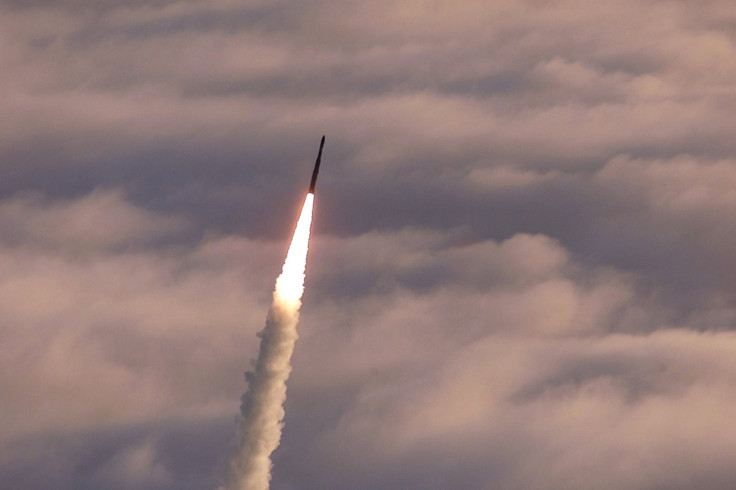US Joins Russia In Latest Race To Modernize Nuclear Arsenal

Secretary of Defense Chuck Hagel announced Friday a series of comprehensive reforms to the United States nuclear force, declaring that the Pentagon will spend billions modernizing the nation’s arsenal. The vow comes during a difficult year for the Air Force component of the nuclear arsenal, after a series of major security flaws and problems with leadership have raised fears about the operational capability of the nuclear forces.
While this upgrade, thought to cost upward of $10 billion, has been in the pipeline for years, its necessity has become more urgent as an increasinyl aggressive Russia and hints of a new Cold War take the U.S. closer to a climate of hostility with Russia not seen since the 1980s.
According to Hugh Chalmers, an associate fellow and nuclear arms control expert at the Royal United Services Institute, a London-based independent think tank, the U.S. is not alone in the modernization of its arsenal.
“All nuclear states are undergoing some form of nuclear modernization at the moment, or will very soon be going through that process,” said Chalmers. “You can look around the world and see new missiles being developed, new submarines, new cruise missiles, so the U.S. is certainly not alone in its efforts to keep its nuclear forces up to date.”
Indeed, Russia, which test-launched its newest intercontinental ballistic missile in September of this year, has committed to spending upward of $560 billion modernizing its military over the next six years -- 25 percent of which will go directly towards updating its nuclear program.
The U.S., on the other hand, has said that it will take $355 billion over 10 years to upgrade its own nuclear arsenal and keep pace with the rearmament spree underway in the rest of the world.
“Our rival powers are investing billions of dollars to modernize and improve their nuclear systems,” said Maj. Gen. Sandra Finan, Air Force Nuclear Weapons Center commander, warning on Tuesday that if the U.S. is “to remain credible,” it must maintain nuclear preparedness as a priority.
The Air Force element of the nuclear force has been embroiled in a number of scandals over the last seven years, from drug abuse among the men and women entrusted to watch over the missiles to the accidental flying of live nuclear bombs over American soil in 2007.
A recent review discovered that maintenance crews at three different nuclear sites in Montana, Wyoming and South Dakota were sharing a single piece of equipment that had to be sent by Federal Express each time it was needed.
But while the reports indicate that an overhaul of the U.S. nuclear force is needed, this new nuclear modernization seems to fly in the face of international agreements to reduce nuclear arsenals. “All nuclear weapon states are staring down the barrel of the next nuclear non-proliferation treaty review conference in early 2015,” said Chalmers. “The U.S., Russia, U.K., China and France all took commitments to negotiate away their arsenals in the late '60s. Of course all non-nuclear weapon states are always seeking assurances that will eventually happen, and as they approach this next review conference they are going to be looking around the nuclear weapons states and seeing nothing but modernization.”
The world's nuclear-armed states include the five permanent members of the United Nations Security Council, plus India, Pakistan and North Korea. Israel, though it has never acknowledged it possesses nuclear weapons, is widely known to have a vast atomic arsenal.
© Copyright IBTimes 2025. All rights reserved.






















